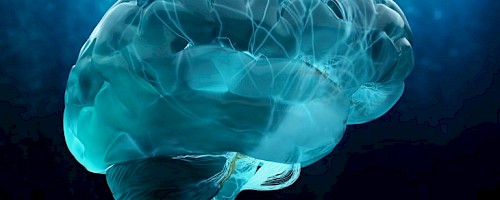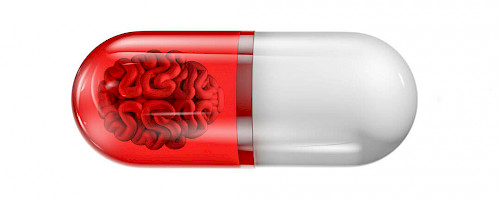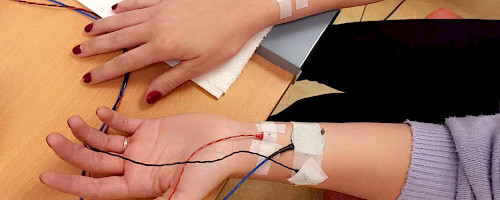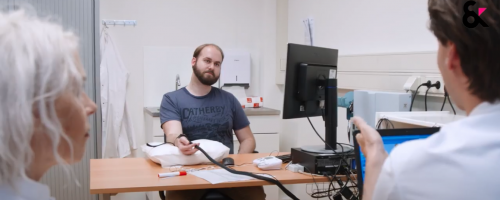Projects
There is increasing evidence that psychological factors, such as stress or placebo effects, influence the quality of life, disease outcomes, and effects of medical treatments in both healthy populations and somatic conditions. Our overarching goal is to understand and make optimal use of psychoneurobiological mechanisms that underlie health and chronic conditions. To this end, we combine innovative insights from different disciplines (e.g., psychology, medicine, biology, genetics, communication) in testing psychoneurobiological mechanisms of symptom perception, stress responsiveness, and adjustment to or progression of chronic disease, as well as in developing and implementing disease-generic personalized psychological or psychobiological interventions for healthy and patient populations (e.g., through e-health). Examples of several important research projects are shown below. Click here for an overview of all projects within the Health and Medical Neuropsychology unit of Leiden University.
Topics by category

TOPIC: Psychological Factors in Itch and Pain
Since itch and pain can be very burdensome, especially when individuals suffer from (either of) these symptoms chronically, it is important to know th…
Read more
Proj

TOPIC: Psychopharmacology in Health and Medical Psychology
In this research line, the role pharmacological agents and neurochemcial processes play in behavior and cognition is examined with a particular focus…
Read more
Proj

TOPIC: Self-Management in Chronic Diseases
Having a chronic somatic condition can result in a variety of impairments in patients’ daily lives, including not only physical complaints such as p…
Read more
Proj

TOPIC: Stigmatization in Patients with Chronic Health Conditions
Perceived stigmatisation causes significant distress in patients and is related to impairments in mental and physical health. Despite this, research o…
Read more
Proj

TOPIC: Stress and Stress-Related Disorders
The precise psychobiological mechanisms leading to chronic physiological stress responses have not been sufficiently explained, although stress is a m…
Read more
Proj

TOPIC: The Placebo and Nocebo Effects of Communication
Creating better insight into which communication can influence patient outcomes can help to improve care. Our ultimate ambition is to improve patients…
Read more
Proj

TOPIC: Healthy lifestyle: Nudging and self-regulation
We are all aware of the importance of a healthy lifestyle. However, at the same time we also experience many difficulties when we are trying to change…
Read more
Proj

TOPIC: Persistent physical symptoms
Persistent somatic symptoms are long term symptoms that lack a clear medical explanation. These symptoms have a high prevalence where most people know…
Read more
Proj

TOPIC: Placebo Effects
The effects of many treatments are determined, to a significant degree, by factors other than the medicine or treatment itself. For example, placebo e…
Read more
Proj

COMMUNICATE HEAL-TH
A Virtual Reality training tool for optimizing expectancy effects in patient-provider interaction. We aim to create an innovative e-learning and virt…
Read more
Proj

Pharmacological conditioning
The major aim is to examine the potential of learning the body to produce a similar physiological (autonomic, neuroendocrine, or immune) and physical…
Read more
Proj

Psychophysiological responses to stress and stress management
The major aim is to determine the psychophysiological responses to stress and stress-management interventions and to examine the role of stress and st…
Read more
Proj

e-Coach: Tailored cognitive-behavioral e-Health care for patients with chronic somatic conditions
The major aim is to develop, evaluate, and implement disease-generic cognitive-behavioral interventions through the internet in order to optimize tail…
Read more
Proj

Placebo Stories
To what extent do your thoughts and experiences affect your health? What is the impact of the placebo effect on medical treatments, for example for pa…
Read more
Proj

Attentional processing of itch and pain
This project is aimed at 1) elucidating the role of attention in itch and pain, including orientation, and attentional disengagement (i.e., directing…
Read more
Proj

The role of expectancies and avoidance learning in the maintenance of somatic symptoms
Somatic symptoms, such as pain, itch, and fatigue have been shown to have a bidirectional relationship with mental symptoms. Although acute somatic sy…
Read more
Proj

We all BENEFIT: The Ecosystem for Healthy Living
The modification of risk factors and related health behaviors lies at the very core of adequate cardiovascular risk management, yet evidence shows tha…
Read more
Proj